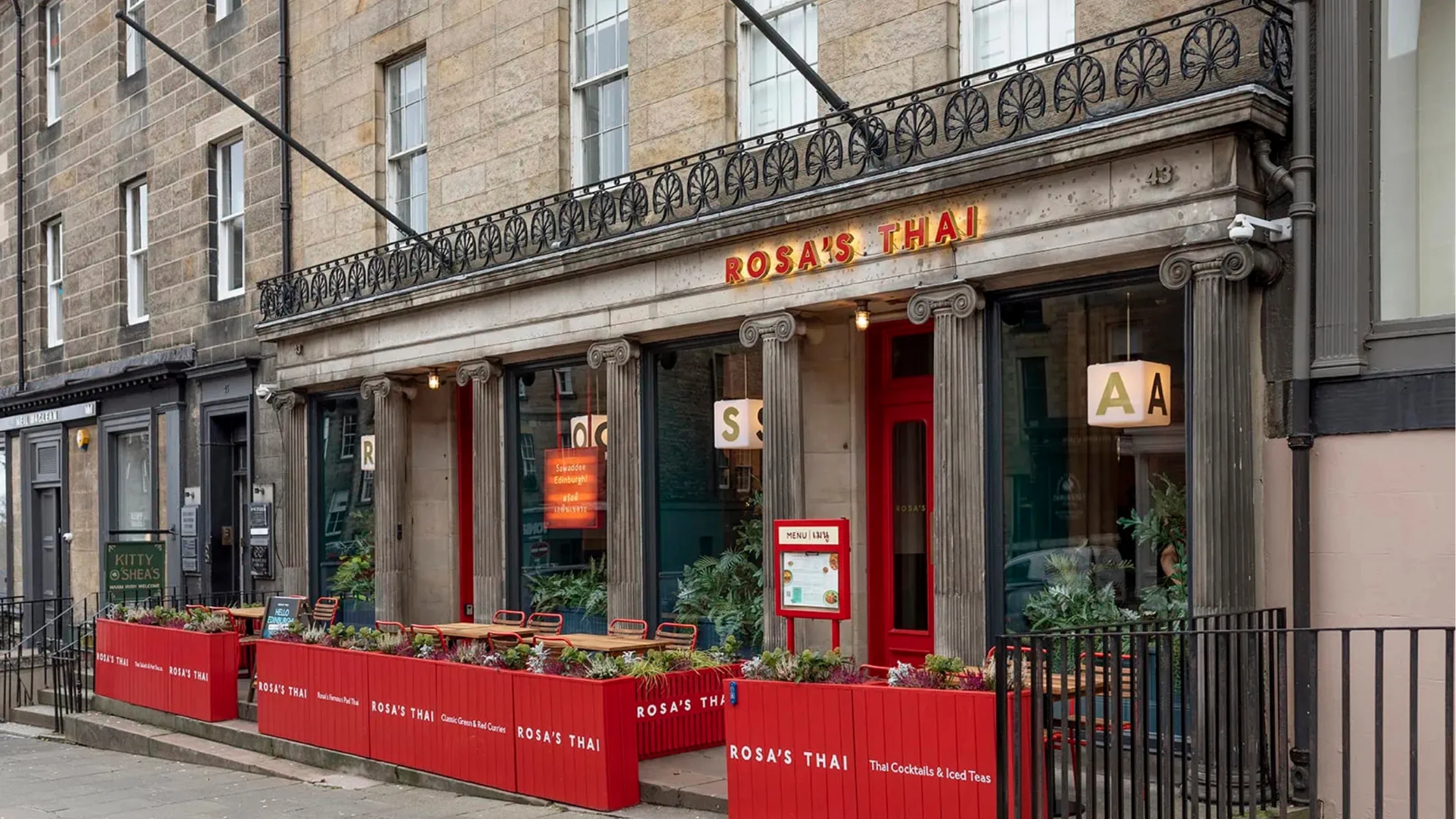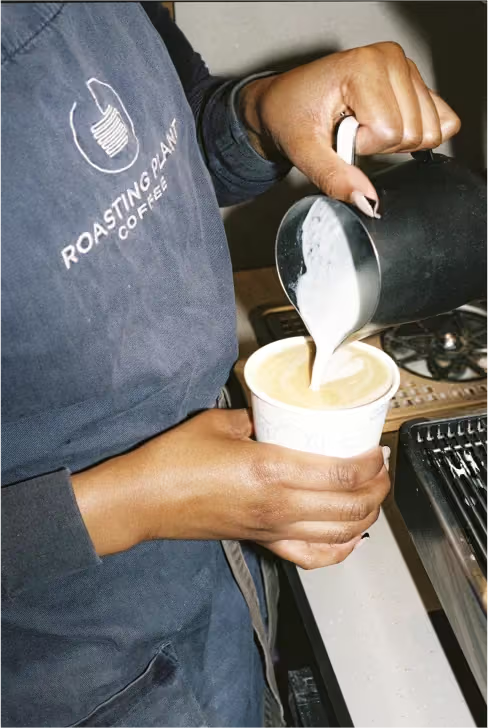Rosa's Done Right: How this Thai chain mastered consistency across 46 sites
About the author💡Jonny Bramwell is the Regional Head of Operations at Rosa’s Thai, which serves up authentic Thai food inspired by family recipes at locations around the UK. He’s been with Rosa’s for just over a year and a half, after a career which has seen him excel in hospitality across everything from pubs and casual dining, to Covid-era bars and restaurants.
Jonny Bramwell on Rosa's Done Right, trust, and champions
What’s a good sign for a hospitality business? Rosa’s Thai have the answer – literally. Their journey started in an old cafe in East London, which husband and wife team, Alex and Saiphin bought in 2008. Out of respect for the cafe’s previous incarnation as a local institution (and because there was no money for new signs) the duo chose to keep the name and branding for their new restaurant.
Job done name-wise. But growing to 46 locations since then has involved a little more work. In the latest episode of our podcast, What’s Cooking? Regional Head of Operations Jonny Bramwell unpacked ‘Rosa’s Done Right’, the culture-first framework that creates consistency across their restaurants without sacrificing character.
Check out a few of the key takeaways below, and listen to the whole episode for even more in-depth analysis on operational excellence.
Do consistency right
Every team talks about operational excellence. Rosa's Thai turned it into a playbook.
‘Rosa's Done Right’ started as a 40-page booklet on how restaurants should look and feel, from station setups and shift briefs to tone of service and outside signage.
But the project quickly evolved to become more than a guide; it's about culture, clarity, and making high standards second nature to everyone on the front line:
A reason that came about is as Rosa's has grown and everything has changed in the world, the inconsistencies have landed throughout. You would have guests saying ‘I didn't know you had a Rosa's here, it's so different to London. We didn't realise you're part of a brand.’ So we were quickly aware we had to drive that consistency. And that wasn't just guest level, that is actually team level.
Seeing different locations operate differently means a kind of 'beautiful chaos': "We wanted to capture the best bits of that and try and make that consistent.”
Get the champion mindset
Instead of imposing standards, Jonny empowered sites to shape and lead them. That meant designating a cohort of self-identified ‘champion’ restaurants to give feedback, test tools, visit other sites, and rate consistency across key touchpoints.
As Jonny explains: “We're saying very simply 'Is this Rosa's done right?' and prompting people to question their businesses."
The restaurant teams were really happy to see them come because they weren't just grading a restaurant. They weren't some kind of teacher. They were peers. They were coaching. They were guiding. They were advising. And that was wonderful. It's testament to the culture we have where everyone was so accepting of feedback to drive positive change.
Focus on the outcomes
In opening new locations, the challenge for Jonny was capturing the fun, chaotic energy of Rosa’s, while still delivering a consistent guest experience.
New sites like Reading and Cheltenham have opened with flagship-level financial performance, 80% team retention from launch, and industry-leading guest sentiment. That’s not a fluke; it comes from focussing on outcomes.
We've seen very meaningful movement in our guest sentiment advocacy, particularly within the keywords of things like cleanliness and atmosphere. We've seen quite significant growth in those areas because there's just such finer attention to detail, particularly within the new openings we did this year. We gave them the language, the tools, and the trust to own the outcome. They really did ‘Rosa's Done Right’ and have opened with unbelievable performance scores.
Check the data
Jonny knew that change can feel like more work. So instead of layering on tasks, the team listened, iterated, and built tools that saved time.
We consolidated all of our performance data daily into one accessible place. We basically have built a dashboard and we have it in the mornings ready to go. It saves a bunch of time and just tells you what to do. I look at it hourly.
Weekly interventions, clear expectations, and room to flex turned resistance into engagement.
Trust the team
The champion program gave Jonny insights into what was working and what wasn’t. One of the issues that came up was around trust:
We were asking teams to do too much and maybe not putting enough trust in them to say, ‘Look, we're running our business. We know what you expect of us, don't force-feed it.’ So we basically put the guard rails down. There’s huge empowerment in that it's their business. They own the outcome and the results.
Rosa’s started doing weekly feedback calls: “They immediately saw they were driving the change. They were part of saying, 'We know what you expect us to do, just trust us to do it.' And that's the right way of approaching it. I've never seen a big project land without that.”
Everyone still speaks the same language. Everyone knows what good looks like. And everyone feels proud of the role they play.
Go inside the Rosa’s Thai playbook
You can hear plenty more from Jonny in our full-length interview, where he shares leadership lessons, key challenges, and explains how to balance beautiful chaos with brand consistency across 46 locations. Check the links below to listen in.
Spotify | Apple Podcasts | YouTube


.webp)
.webp)


